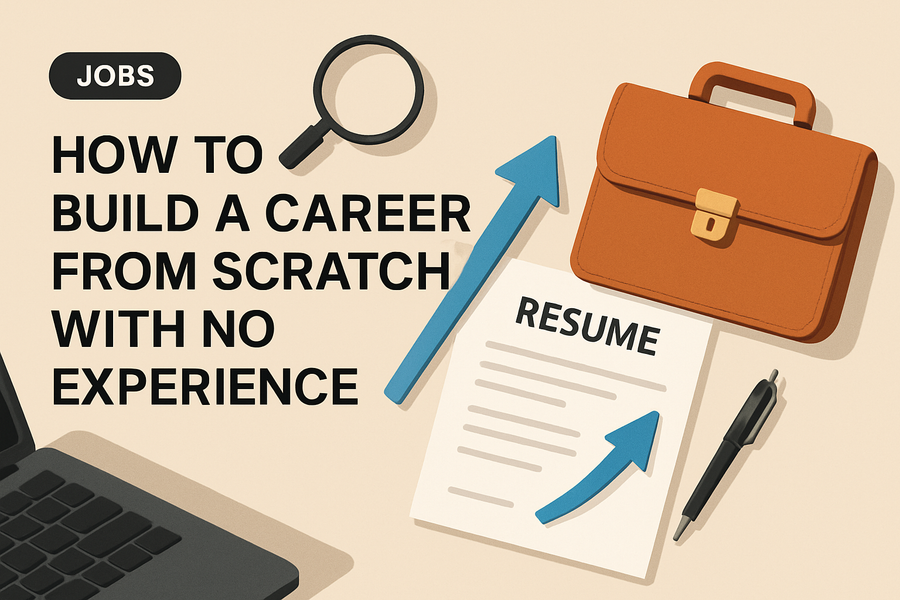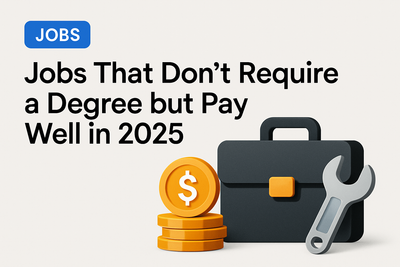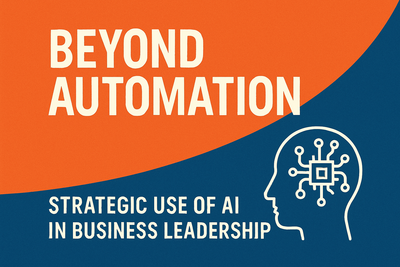How to Build a Career From Scratch With No Experience
Introduction
Starting a career with no experience can feel overwhelming. Whether you're fresh out of school, switching industries, or returning to the workforce after a break, the lack of a traditional resume can be daunting. But here's the good news: everyone starts somewhere, and with the right mindset and strategy, you can build a successful career from the ground up.

1. Define Your Career Goals
Before jumping into job applications, get clear on what you want. Ask yourself:
- What industries interest me?
- What kind of work do I enjoy?
- What are my long-term goals?
Having clear direction helps you stay motivated and makes it easier to identify opportunities that align with your aspirations.
2. Identify Transferable Skills
Even if you don’t have direct job experience, you likely have valuable skills from school, volunteering, hobbies, or life experiences. Skills like communication, problem-solving, time management, and teamwork are highly prized by employers.
Make a list of all your strengths and consider how they apply to the roles you’re interested in.
3. Learn and Upskill
One of the fastest ways to bridge the experience gap is to learn. Look for free or affordable resources such as:
- Online courses (e.g., Coursera, Udemy, LinkedIn Learning)
- Certifications relevant to your desired field
- Local workshops or community college classes
Gaining even basic knowledge in a new area can make you more attractive to employers and give you the confidence to apply.
4. Gain Experience Through Volunteering or Internships
If paid positions seem out of reach, consider volunteering or interning. Non-profits, startups, and small businesses often welcome help and can provide valuable hands-on experience.
Even short-term projects or freelance gigs can help build your resume and demonstrate your commitment to learning and growth.
5. Create a Strong Personal Brand
In today’s digital world, your online presence matters. Build a professional profile on LinkedIn, share industry-relevant content, and connect with people in your desired field.
Start a blog or portfolio website if applicable—this shows initiative and gives employers a better sense of your capabilities and interests.
6. Network Strategically
Many jobs are found through connections rather than cold applications. Attend networking events, join online forums, and reach out to professionals for informational interviews.
Don’t be afraid to ask questions or seek mentorship. People are often willing to help those who show genuine interest.
7. Customize Every Application
When applying for jobs, tailor each resume and cover letter to the specific role. Highlight your transferable skills, relevant coursework, certifications, or volunteer experience.
Use the job description as a guide to frame your qualifications in a way that matches what the employer is looking for.
8. Stay Persistent and Positive
Rejection is part of the process—but don’t let it discourage you. Keep learning, refining your approach, and applying. Every interview, application, and conversation brings you closer to your goal.
Celebrate small wins and keep your end goal in sight.
Conclusion
Building a career from scratch without experience may take time, but it's entirely achievable. By focusing on your strengths, seeking opportunities to learn, and consistently putting yourself out there, you’ll gain the skills, confidence, and network necessary to launch your career. Remember: everyone's journey is unique—yours is just beginning.








